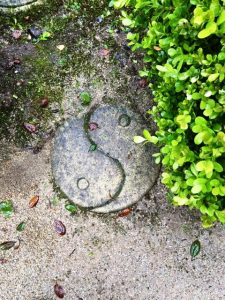Critical Psychology
As we enter in to 2017, we continue to hold tensions around uncertainty and what it means to advocate for socially just ways. When I reflect on purposeful work and “right livelihood” I feel it is important for those of us working in the field of psychology to continually examine the reasons we went into this filed in the first place. I know that, in my case, I thought I could perhaps make a difference in people’s lives in such a way that my work could play a part in reducing suffering, particularly of the “second arrow” type. Those of us who find ourselves in the helping/healing professions as well as in educational settings shoulder a great deal of responsibility in regard to how we may nourish budding potential and foster the capacity for creativity, compassion, and right action in our own and others’ personal and professional lives. Thomas Teo (2015), a faculty member at York University, spoke in the journal, American Psychologist, about challenging those in the field of psychology to critically reflect on our current values and practices. A recent volume of the Journal of Theoretical and Philosophical Psychology has devoted the entire issue to topics of this nature, in which Teo (2015) has contributed an article entitled Are Psychological “Ethics Codes” Morally Oblique? In addition, a recent volume of Peace and Conflict: Journal of Peace Psychology has several quite fiery pieces exploring distinctions in the framing of psychological practice. For instance, one of the pieces is a commentary entitled Adversarial Operational Psychology is Unethical Psychology: A Reply to Staal and Greene (2015). Certainly the divisions for psychoanalysis and for humanistic psychology have also been actively engaging in lively discussion about where the field of psychology is going and how we need to critically question the status quo and expand our perceptual bandwidth to include diverse ways of knowing, including, but not limited to, non-linear paradigms. These discussions bring to light some systemic concerns in our field.
Thomas Teo (2015), a faculty member at York University, spoke in the journal, American Psychologist, about challenging those in the field of psychology to critically reflect on our current values and practices. A recent volume of the Journal of Theoretical and Philosophical Psychology has devoted the entire issue to topics of this nature, in which Teo (2015) has contributed an article entitled Are Psychological “Ethics Codes” Morally Oblique? In addition, a recent volume of Peace and Conflict: Journal of Peace Psychology has several quite fiery pieces exploring distinctions in the framing of psychological practice. For instance, one of the pieces is a commentary entitled Adversarial Operational Psychology is Unethical Psychology: A Reply to Staal and Greene (2015). Certainly the divisions for psychoanalysis and for humanistic psychology have also been actively engaging in lively discussion about where the field of psychology is going and how we need to critically question the status quo and expand our perceptual bandwidth to include diverse ways of knowing, including, but not limited to, non-linear paradigms. These discussions bring to light some systemic concerns in our field.
The process of individuation may be applied in a collective context. For instance, if we were to view the field of psychology as an entity of sorts that is experiencing its own evolutionary development, then it is conceivable that we may join hands across and between theoretical differences to objectively (and subjectively) explore the idea that we may be experiencing a powerful disequilibrium that is calling for a growth spurt in awareness and spiritual maturity and ultimately, integration.
0 comments Juliet Rohde-Brown | psychology
